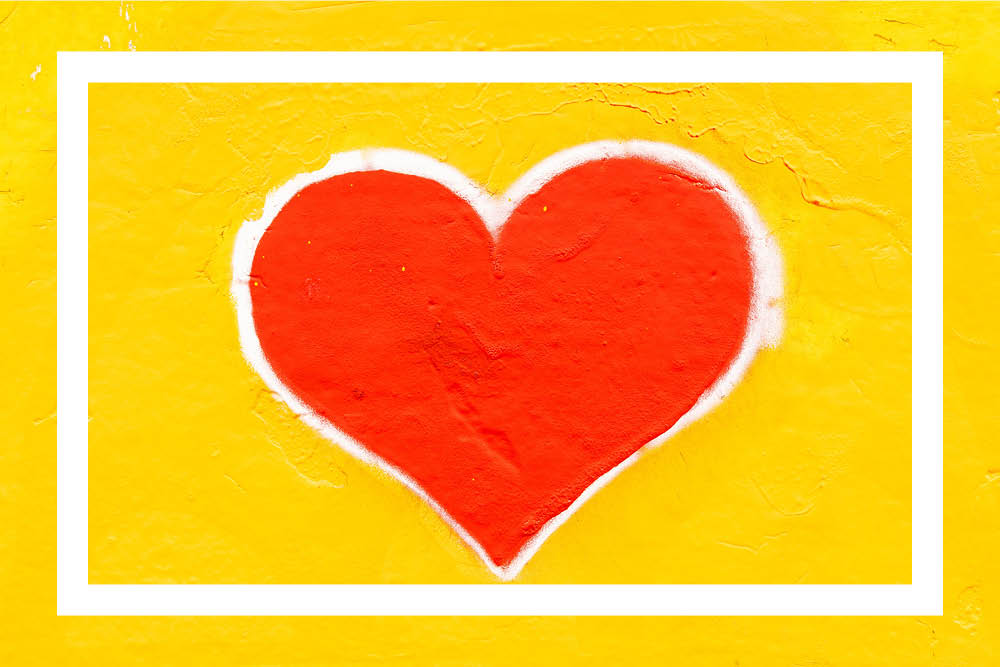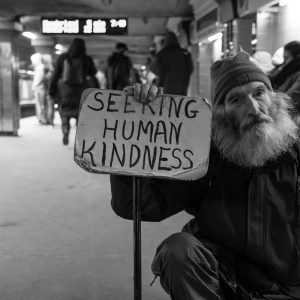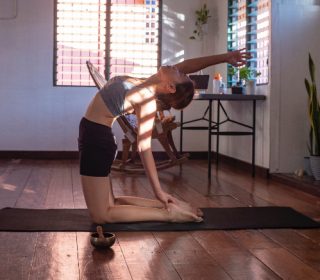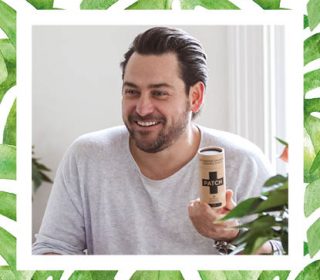How Compassion Gives You Courage

Meditation teacher and founder of plant-based nutrition company Form , Natalia Bojanic, on how compassion can make us stronger, and is the driving force behind every single meaningful human endeavour
Let’s start by defining compassion using the wise words of Nobel Peace Prize winner His Holiness The Dalai Lama: “Genuine compassion is based on a clear acceptance or recognition that others, like oneself, want happiness and have the right to overcome suffering. On that basis, one develops concern about the welfare of others, irrespective of one’s attitude to oneself. That is compassion.”
The definition we learn from the Oxford dictionary defines compassion as “sympathetic pity and concern for the sufferings or misfortunes of others”. As a Mahayana Buddhist student, I believe this definition is incomplete. Let’s see if you agree with me.
First, bring to mind the most compassionate people that you know. It can be famous personalities or unsung heroes who have cared for you.
Their compassion is not simply measured by their levels of concern for the suffering of others, but by their acts of service to alleviate suffering. This is what makes them caring and extraordinary individuals.
That is precisely why compassion is not for the faint-hearted, a compassionate person has to be strong enough to A) feel the pain, instead of numbing or ignoring it, and B) be brave enough to act because of the realisation that alleviating the suffering of others is up to each one of us, therefore we must take responsibility.
Compassion is the aspiration of relieving the suffering of others turned into action. Because worrying about others and doing nothing about it when you have the means turns out to be more painful than actively offering support.
BENEFITS OF COMPASSION
- Compassion makes you happier: A brain-imaging study by neuroscientist Jordan Grafman from the National Institute of Health showed that the “pleasure centres” in the brain are as active when we observe someone giving money to charity as when we receive money ourselves. And a study by the University of British Columbia saw participants receive a sum of money – half were instructed to spend the money on themselves; the other half was told to spend the money on others. At the end of the study, participants who had spent money on others felt significantly happier than those who had spent money on themselves. Takeaway: giving is a source of pleasure.
- Compassion may increase longevity: Research from the University of Michigan showed that people who engaged in volunteering lived longer than their non-volunteering peers, if their reasons for volunteering were altruistic rather than self-serving. Takeaway: when you help, you do it for others not for yourself.
- Compassion is part of our evolution: In The Descent of Man and Selection In Relation to Sex, Darwin says that “communities which included the greatest number of the most sympathetic members would flourish best, and rear the greatest number of offspring.” Takeaway: compassion is key for the survival and flourishing of humankind.
COMPASSION AND COURAGE
So, if compassion is so good for us, why don’t we practice more often? Dr Thupten Jinpa, author of A Fearless Heart, a book on compassion, explains that “Compassion – for ourselves and for others – takes courage. It takes courage to take care of ourselves, to make decisions in our best interest and not let our fear of what other people think throw us off course… Compassion requires us to pay attention and engage with people’s troubles and suffering when it might be easier to ignore them or to otherwise make do with the status quo,” she says. “It takes courage to trust enough to open ourselves up to others, whether in asking for or offering help. However, compassion also makes courage. Acting out of compassion for ourselves, we can be more confident that we are doing the right thing. It takes courage to open our hearts to others and expose our vulnerability but, as the Dalai Lama often points out, when we do we feel transparent and free. We can stop hiding, stop fearing someone will see who we really are, because we are choosing to be seen.”
COMPASSION IN ACTION
Compassion is part of our human nature and it’s imprinted on our minds – deep down we all know that if it wasn’t for the compassion of others we wouldn’t be where we are. Starting with our parents who gave us our lives, then our caregivers who looked after us when we were most vulnerable and incapable as babies, then all our different teachers and the workers behind everything we possess – from food, to clothes, to cars…
We have this illusion of independence, but reality shows how intrinsically interconnected we all are. Therefore, in this complex web of interwoven systems of human and nature we must play our part in a compassionate way. The below few exercises will help you to know-how:
1. Start a self-compassionate journal where, at the end of the day, you give yourself a break to take an emotional inventory of your feelings and emotions without judgment or criticism.
2. Begin your day with the intention of having compassion as your standing point. Visualise how your actions and reactions might change if they are flavoured with a compassionate attitude. See if there are any shifts in your priorities when you expand the mindset from “me, myself and I” to what can we achieve together with solidarity.
3. Watch movies and documentaries, listen to podcasts, read biographies to nourish your compassionate heart. Here some recommendations:
- Watch: Capernaum
- Listen: Meditation on Compassion by Tara Brach
- Read: The Gifts of Imperfection by Brene Brown
4. When you need a reminder on how to offer compassion to the ‘difficult people’ in your life, enjoy this “Just Like Me” Meditation.
5. Make a commitment to do something every day that will have a meaningful impact on someone else’s life. Call your granny, buy food for a homeless person you see on the street, say yes to a not-for-profit project – these are wonderful ways to help that don’t necessarily require much time or effort, but the ripple effects of your acts and the seeds you are planting will leave a beautiful legacy in human civilization.
If you don’t believe in the power of your actions, I leave you with this final quote for the day: “If you think you are too small to make a difference, try sleeping with a mosquito” – His Holiness the Dalai Lama.
Compassion enlivens us, so practice it as often as you can!











